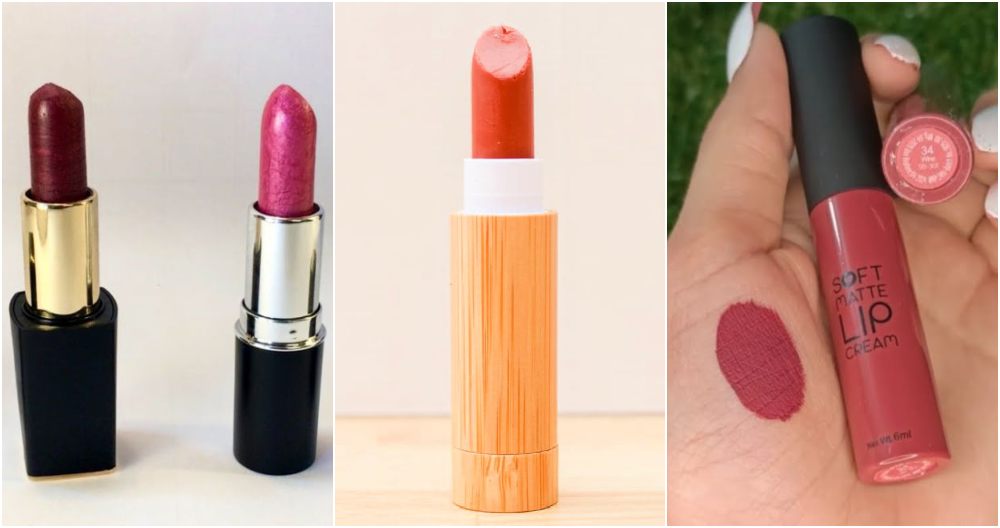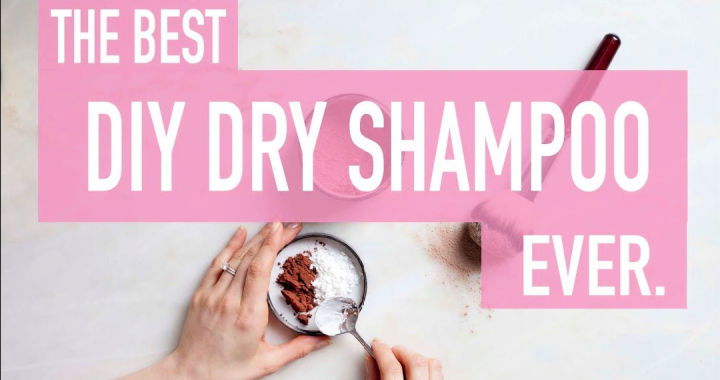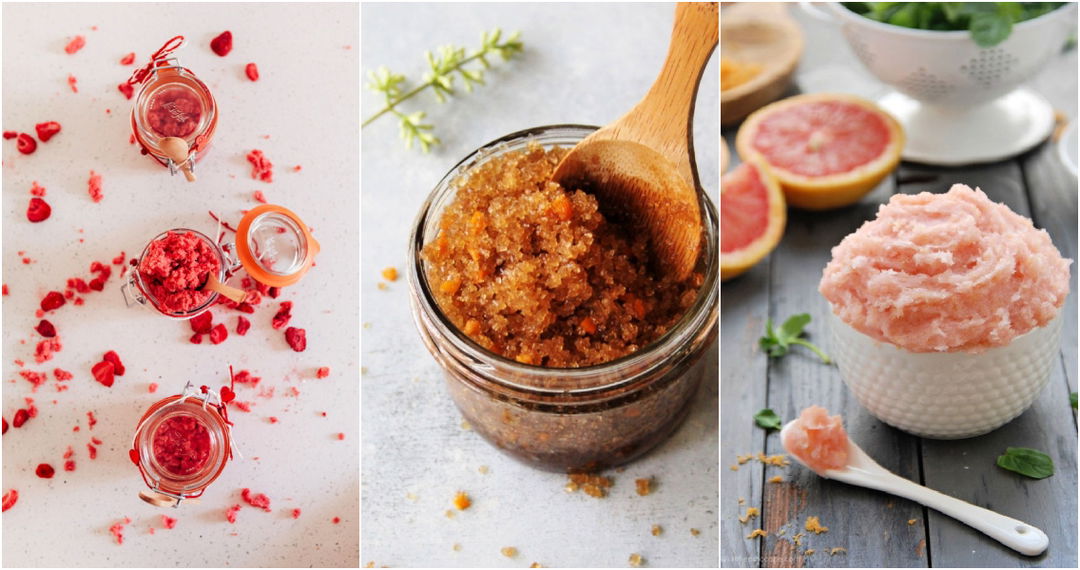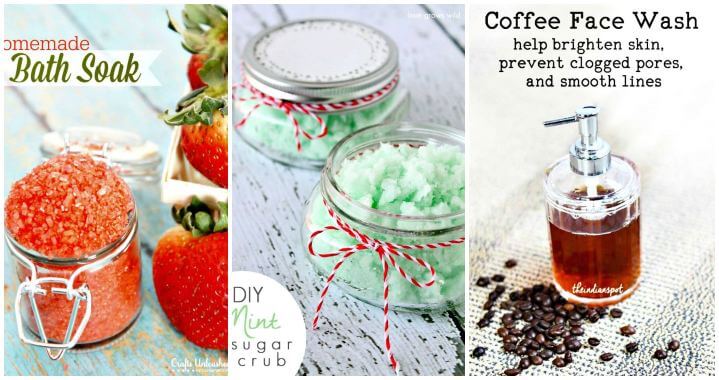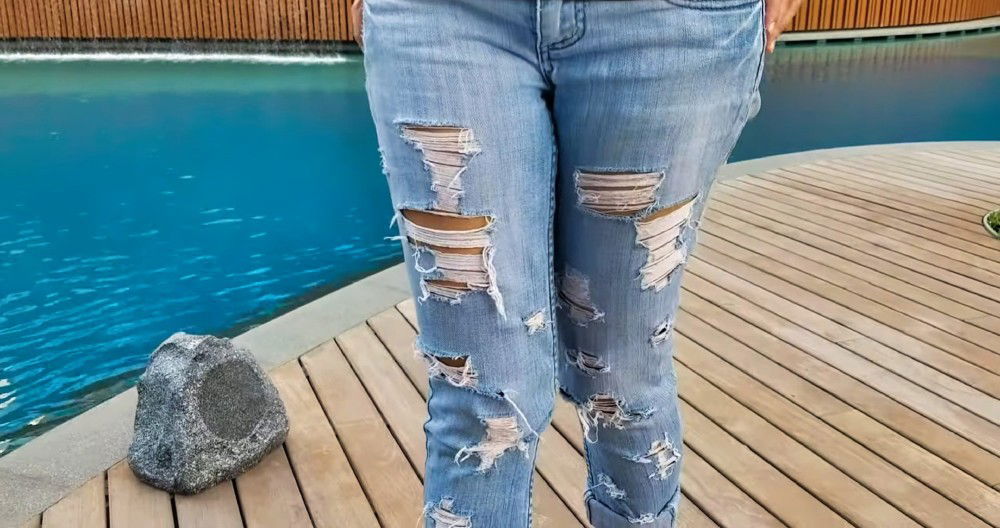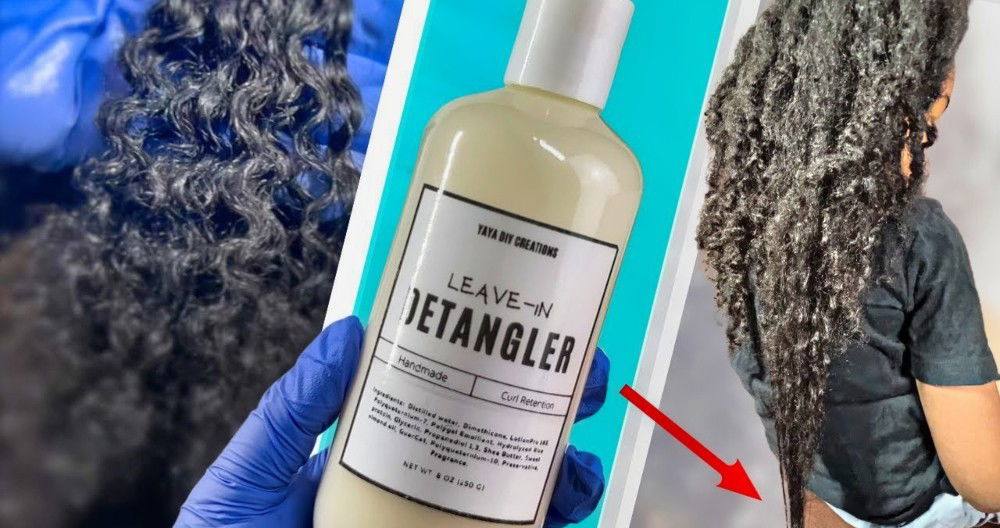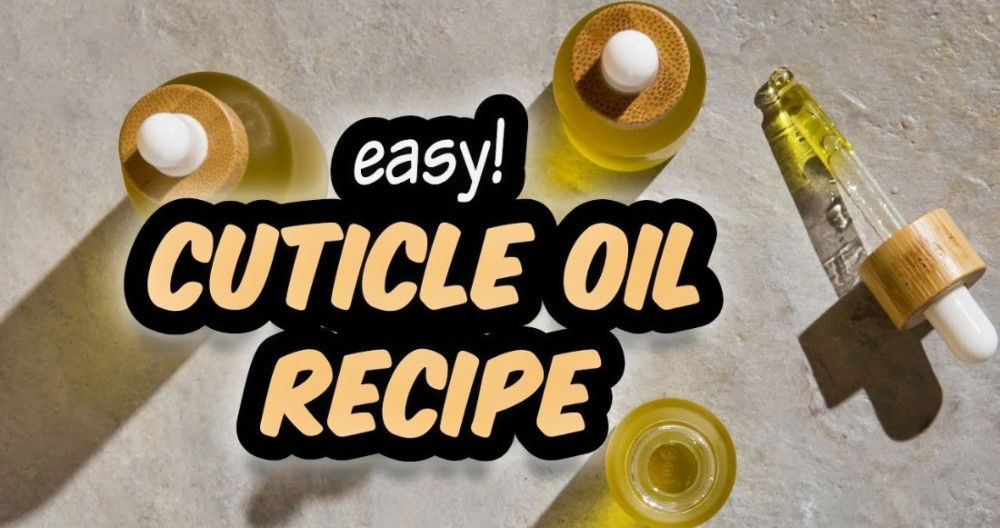Exploring the realm of DIY charcoal face masks introduces you to an array of detoxifying recipes designed to rejuvenate your skin. These homemade concoctions, known for their potential to cleanse deeply, offer a personalized skincare experience. With ingredients easily found at home or local stores, making a charcoal face mask tailored to your skin's needs becomes an engaging activity. The process not only promotes healthier skin but also empowers you with knowledge about what you're applying to your face.
Understanding the benefits of activated charcoal and how it can improve your skin is the first step in incorporating it into your skincare routine. As you navigate through different detoxifying recipes, you'll learn how to safely harness charcoal's power for acne-prone or sensitive skin.
This guide aims to provide insightful, straightforward advice to assist you in making an effective DIY charcoal face mask. Let's dive into the enriching world of skincare, where making your mask becomes a satisfying journey towards glowing skin. Continue reading to unlock the 20 best DIY detoxifying recipes for your skin.
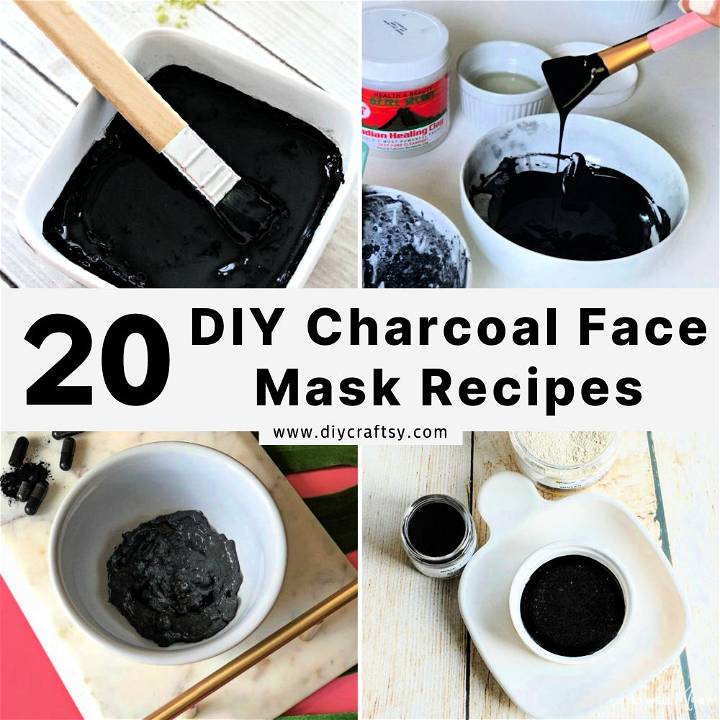
Why Use a DIY Charcoal Face Mask?
Using a DIY charcoal face mask can be incredibly beneficial for your skin. Here's why:
- Detoxifies: Charcoal acts like a magnet to draw out impurities, such as dirt, oil, and bacteria, from your pores. This leaves your skin feeling clean and refreshed.
- Exfoliates: The slightly gritty texture of charcoal helps gently scrub away dead skin cells. This can improve skin texture and brightness.
- Controls Oil: If you have oily skin, a charcoal mask can help manage shine. It absorbs excess oil without stripping your skin of its natural moisture.
- Budget-friendly: Making your own charcoal mask at home can be more cost-effective than buying pre-made masks. Plus, you control the ingredients, ensuring they are natural and suitable for your skin type.
- Customizable: You can tailor your DIY mask to address specific skin concerns. For example, adding tea tree oil for acne-prone skin or aloe vera for soothing sensitive skin.
- Natural Ingredients: By choosing a DIY approach, you avoid the potential chemicals and preservatives found in some store-bought masks. This means a lower risk of irritation for sensitive skin types.
A DIY charcoal face mask offers a simple, affordable, and effective way to improve your skin's health. Whether you're battling acne, oily skin, or just want a deep cleanse, this natural solution has something to offer. Plus, it's a fun and rewarding DIY project!
Is Charcoal Good for Your Skin?
Charcoal, specifically activated charcoal, has become a popular ingredient in skincare. But does it live up to the hype? Here's what you need to know:
Potential Benefits
- Removes impurities: Activated charcoal may effectively absorb dirt, oil, and other impurities from deep within your pores, leaving skin feeling cleaner.
- Exfoliates gently: Charcoal's slightly gritty texture helps remove dead skin cells, revealing smoother, brighter-looking skin.
- May reduce acne: By drawing out sebum (oil) and bacteria, charcoal may help reduce acne breakouts.
Things to Consider
- Limited scientific evidence: While charcoal shows potential, more research is needed to confirm many of the claimed benefits definitively.
- Potential for dryness: Charcoal can be drying, especially for those with naturally dry skin. It's best to follow its use with a good moisturizer.
- Not for everyone: If you have sensitive or irritated skin, charcoal-based products might worsen skin conditions.
How to Make a DIY Charcoal Face Mask for Acne
Acne can be a challenging issue to deal with, and finding the right skincare routine is crucial. A DIY charcoal face mask is an excellent addition to your skincare arsenal if you're keen on using natural, simple, and effective ingredients. Charcoal is praised for its powerful detoxifying properties, drawing out impurities and clearing out pores, making it ideal for acne-prone skin. Follow this step-by-step guide to make a beneficial charcoal face mask at home.
What You'll Need:
- 1 capsule of activated charcoal (in powder form for less mess)
- 1 tablespoon of raw honey (for its moisturizing qualities)
Step 1: Prep Your Ingredients
Ensure you have a clean, small bowl and a spoon ready. Carefully open the capsule of activated charcoal and empty the powder into the bowl, avoiding any spills.
Step 2: Mix Your Mask
Add one tablespoon of raw honey to the bowl with the charcoal powder. Gently mix the two ingredients until you achieve a consistent paste. The honey not only adds a moisturizing element but also helps in making a smooth application.
Step 3: Test on a Small Area
Before applying the mask all over your face, especially if you have sensitive skin, it's recommended to test it on a small area of your skin first. Wait for a few minutes to ensure there is no adverse reaction.
Step 4: Apply the Mask
Make sure your face is clean and dry. With your fingers or a brush, apply a thin layer of the mask all over your face, avoiding the eyes and mouth area. The activated charcoal can be messy, so consider wearing an old T-shirt.
Step 5: Time It Right
Leave the mask on your face for no more than 10 minutes. It's essential not to overdo it, as the mask can dry out your skin if left on for too long.
Step 6: Rinse Off
With lukewarm water, gently rinse off the mask from your face. You might need to wash your face a couple of times to remove all the charcoal residue. Pat your skin dry with a clean towel.
Step 7: Moisturize
After removing the mask, follow up with a layer of shea butter or your favorite moisturizer to nourish and hydrate your skin, leaving it feeling soft and supple.
Tips:
- Use this mask once a week for the best results.
- Store any leftover mixture in an airtight container in the refrigerator for up to a week.
A DIY charcoal face mask can be a potent tool for managing acne, thanks to the drawing power of charcoal and the soothing, hydrating properties of honey. By incorporating this mask into your weekly skincare routine, you're taking a step towards clearer, healthier-looking skin.
Video Tutorial
For a step-by-step video tutorial on how to make and apply your DIY charcoal face mask for acne, watch this helpful video.
It pairs well with this written guide, offering a comprehensive visual approach that makes the process easy to follow and understand.
How to Use Charcoal Safely in Your Skincare Routine
If you do want to try charcoal for its potential benefits, here are some things to keep in mind:
- Choose the right product: Look for charcoal in cleansers, masks, or spot treatments. Avoid harsh scrubs if you have sensitive skin.
- Start slowly: Test any charcoal product on a small area before applying it to your whole face. Use it only once or twice a week initially.
- Moisturize well: Always hydrate your skin after using a charcoal product.
If you experience irritation or increased dryness, stop using charcoal and consult a dermatologist if needed.
Customization Options for DIY Charcoal Face Masks
Creating a DIY charcoal face mask is a fantastic way to cater to your unique skin needs. Charcoal is known for its ability to draw out impurities and toxins, making it an excellent ingredient for skin care. However, not all skin types are the same, and it’s important to tailor your face mask to suit your specific skin concerns. Here’s how you can customize your DIY charcoal face mask for different skin types:
For Oily Skin
If you have oily skin, you’ll want a mask that can absorb excess oil without over-drying. Mix activated charcoal with clay, which is also known for its oil-absorbing properties. You can add a probiotic capsule to the mix to help balance the skin’s microbiome, which can reduce the occurrence of acne.
For Dry Skin
Dry skin requires a mask that detoxifies while also providing moisture. Combine activated charcoal with ingredients like honey, which is a natural humectant that helps retain moisture in the skin. This combination will cleanse your skin while keeping it hydrated.
For Sensitive Skin
Sensitive skin needs gentle care. Aloe vera is a soothing ingredient that can be mixed with charcoal to create a calming mask. This combination will help remove impurities without causing irritation or redness.
For Acne-Prone Skin
For those dealing with acne, a mask that targets bacteria and helps heal the skin is essential. Mix charcoal with tea tree oil, which has antibacterial properties, to help combat acne-causing bacteria and soothe inflamed skin.
For Combination Skin
Combination skin can be tricky, but a balanced approach works best. Use charcoal with green tea, which has antioxidants that can help reduce inflammation in oily areas while moisturizing dry patches.
For Aging Skin
Aging skin benefits from ingredients that offer anti-aging properties. Mix charcoal with ingredients like rosehip oil, which is rich in vitamins and antioxidants that can help reduce the appearance of fine lines and wrinkles.
For Brightening Skin
To brighten dull or uneven skin tones, combine charcoal with turmeric. Turmeric has natural brightening properties and can help even out skin tone and reduce the appearance of dark spots.
By understanding the needs of your skin type, you can create a DIY charcoal face mask that not only cleanses and detoxifies but also addresses your specific skin concerns. Remember to always do a patch test before applying any new mask to your entire face, and enjoy the benefits of a personalized skincare treatment right at home.
Comparison with Commercial Masks
When it comes to choosing between DIY and commercial charcoal face masks, there are several factors to consider. Both have their advantages and can be effective for skin care, but they cater to different needs and preferences.
Ingredients and Purity
DIY charcoal masks often use fewer and more natural ingredients. This simplicity can be beneficial for those with sensitive skin or allergies to certain chemicals commonly found in commercial products. With DIY masks, you have full control over what goes on your skin.
Commercial masks, on the other hand, may contain a wider range of ingredients, including preservatives and fragrances. While these can enhance the product’s shelf life and sensory appeal, they might not be suitable for all skin types.
Cost-Effectiveness
Creating your own charcoal face mask at home can be more cost-effective in the long run. You can purchase ingredients in bulk and use them multiple times, whereas commercial masks are often single-use and come with a higher price tag.
Convenience and Time
Commercial masks offer convenience. They are ready to use and require no preparation time. If you’re short on time or prefer not to mix ingredients, commercial masks might be the better option for you.
Customization
One of the biggest advantages of DIY masks is the ability to customize the formula to your skin’s specific needs. You can add or omit ingredients based on your skin type and concerns. Commercial masks are one-size-fits-all and may not address individual skin issues as effectively.
Environmental Impact
DIY masks can be more environmentally friendly. They typically involve less packaging and waste compared to commercial masks, which often come in single-use packets or containers that contribute to landfill waste.
Effectiveness
Both DIY and commercial masks can be effective, but the results may vary. DIY masks made with fresh, high-quality ingredients can be just as effective, if not more so, than commercial options. However, commercial masks are formulated by professionals and may contain active ingredients at concentrations that are difficult to replicate at home.
Choosing between DIY and store-bought charcoal face masks depends on your preferences, skin, and needs. DIY masks allow personalization, save money, and are eco-friendly, while commercial ones are convenient, professionally made, and might have potent ingredients. Consider these aspects and always do a patch test before using new skin products.
FAQS About DIY Charcoal Face Masks
Here we cover some of the most commonly asked questions to help you get the best out of your DIY charcoal face mask experience.
What is activated charcoal and why is it used in face masks?
Activated charcoal is a fine black powder made from bone char, coconut shells, peat, petroleum coke, coal, olive pits, or sawdust. It becomes "activated" by processing at very high temperatures, which changes its internal structure, reducing the size of its pores and increasing its surface area. This process makes it highly absorbent and effective at trapping chemicals and toxins. In face masks, activated charcoal is used for its ability to draw out impurities from the skin, including dirt, oil, and bacteria, leading to a cleaner and more refined complexion.
How often should I use a DIY charcoal face mask?
For most skin types, using a DIY charcoal face mask once a week is enough to see benefits without over-drying the skin. However, if you have very oily skin, you might benefit from using it twice a week. Always listen to your skin's needs and adjust accordingly. If your skin starts feeling dry or irritated, reduce the frequency of use.
Can I use a DIY charcoal face mask if I have sensitive skin?
Yes, but with caution. If you have sensitive skin, it's important to do a patch test on a small area of your skin before applying the mask to your entire face. You should also consider modifying the recipe to be gentler on your skin, such as adding more soothing ingredients like aloe vera or reducing the amount of charcoal used. Always follow up with a moisturizer to keep your skin hydrated.
What should I do if the charcoal face mask causes irritation?
If you experience irritation after using a charcoal face mask, rinse the mask off immediately with cool water. Apply a soothing moisturizer or aloe vera gel to calm the skin. If irritation persists, consult a dermatologist. In the future, test homemade masks on a small patch of skin before full application and consider using less reactive ingredients.
Can I make a charcoal face mask without bentonite clay?
Yes, you can make a charcoal face mask without bentonite clay. While bentonite clay is a popular ingredient in many DIY face masks due to its detoxifying properties, you can substitute it with other ingredients like oatmeal, which has soothing properties, or simply mix the activated charcoal with aloe vera gel or honey for different skin benefits. The key is to find what works best for your skin type.
How can I remove the charcoal mask residue effectively?
Charcoal mask residue can be stubborn. To remove it effectively, use a soft, damp cloth to gently wipe off the mask in a circular motion. Rinse your face several times with lukewarm water to ensure all the charcoal is washed away. It may also help to use a gentle cleanser to remove any lingering residue. Avoid using hot water as it can irritate the skin.
Are there any natural ingredients I can add to my DIY charcoal mask for extra benefits?
Absolutely! Depending on your skin's needs, you can enhance your DIY charcoal mask with various natural ingredients:
- For additional moisture: Add a few drops of almond oil or coconut oil.
- To soothe irritated skin: Mix in aloe vera gel or cucumber juice.
- For acne-prone skin: A few drops of tea tree oil can provide antibacterial properties.
- To brighten dull skin: Lemon juice or honey can add a glowing touch.
Always remember to patch test any new ingredient you add to your mask to ensure your skin reacts well to it.
DIY Charcoal Face Mask (20 Best Detoxifying Recipes)
Discover the top 20 best DIY charcoal face mask recipes for a deep detoxifying skincare routine. Get glowing, clear skin with these natural remedies.
1. DIY Activated Charcoal Purifying Face Mask
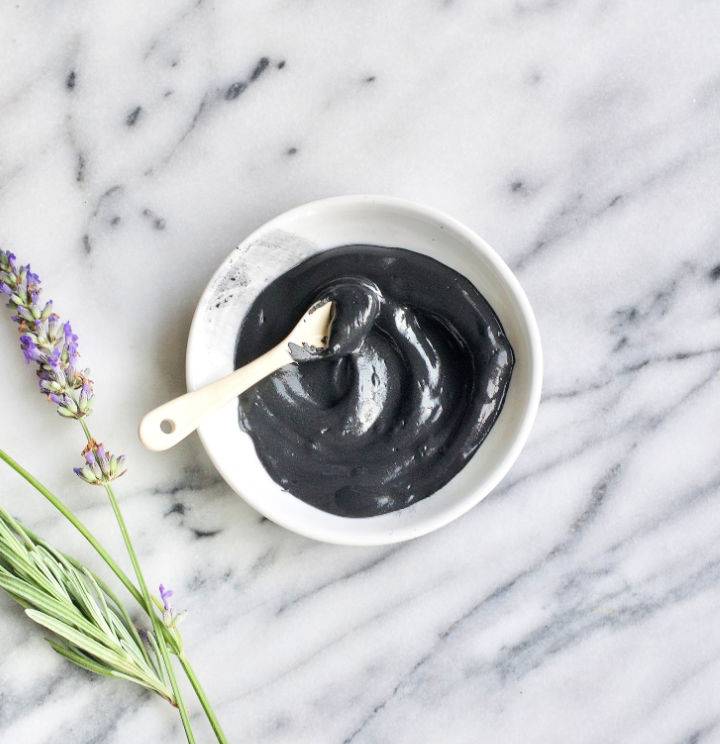
Discover the purifying benefits of DIY activated charcoal face masks with a simple recipe from All Purpose Flour Child. Made from natural ingredients like bentonite clay and tea tree oil, this mask deeply cleanses by drawing out toxins and blemishes, leaving skin refreshed. It's an easy mix-and-apply solution for anyone wanting clearer, healthier-looking skin. Give your skincare routine a natural boost with this powerful, purifying charcoal mask.
2. Homemade Charcoal Face Mask
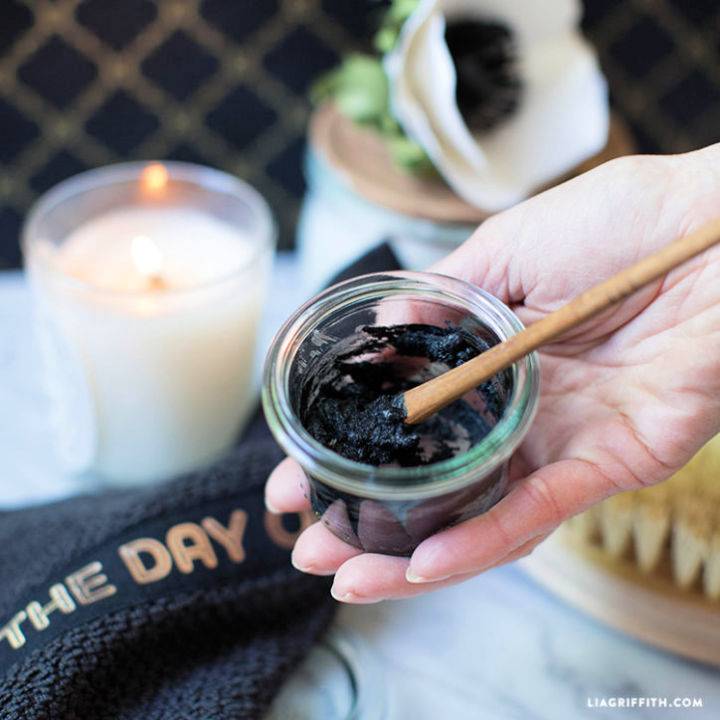
Unveil the secret to a clearer complexion with a DIY Charcoal Face Mask, perfect for those battling with acne, oily skin, or blackheads. This simple recipe mixes activated charcoal with bentonite clay, coconut oil, baking soda, and water—an easy blend you can prepare at home.
Ensure you use wooden or rubber tools to keep the bentonite clay effective. Ideal for an occasional detox, this mask should be used wisely to prevent over-drying. For a full guide and more natural beauty recipes, visit Lia Griffith. Remember, patch test first and follow up with a moisturizer!
3. 3 Ingredient Activated Charcoal Face Mask
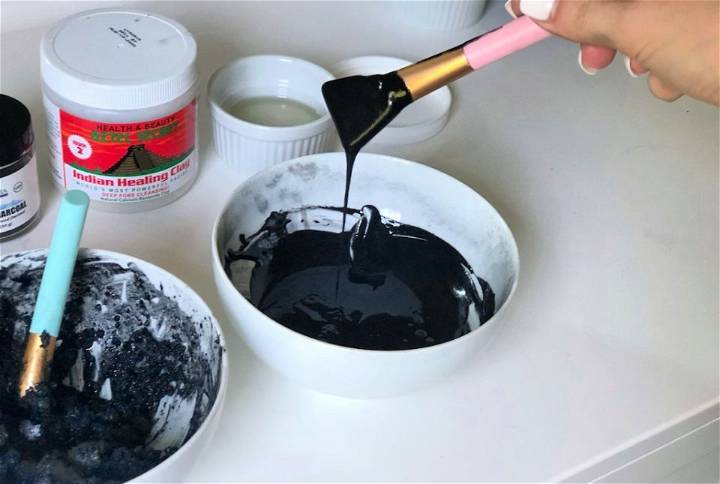
Unlock beautiful skin with this easy DIY activated charcoal face mask guide. Discover how activated charcoal can cleanse pores, fight acne, and improve your skin's appearance without the hefty price tag of store-bought options. Learn the correct steps and what not to do for perfect consistency every time. Dive into a skincare routine that's not just effective, but also incredibly affordable. For those not ready to DIY, recommended store alternatives are included. Ready to explore more DIY beauty? Start here.
4. DIY 2 Ingredient Charcoal Face Mask
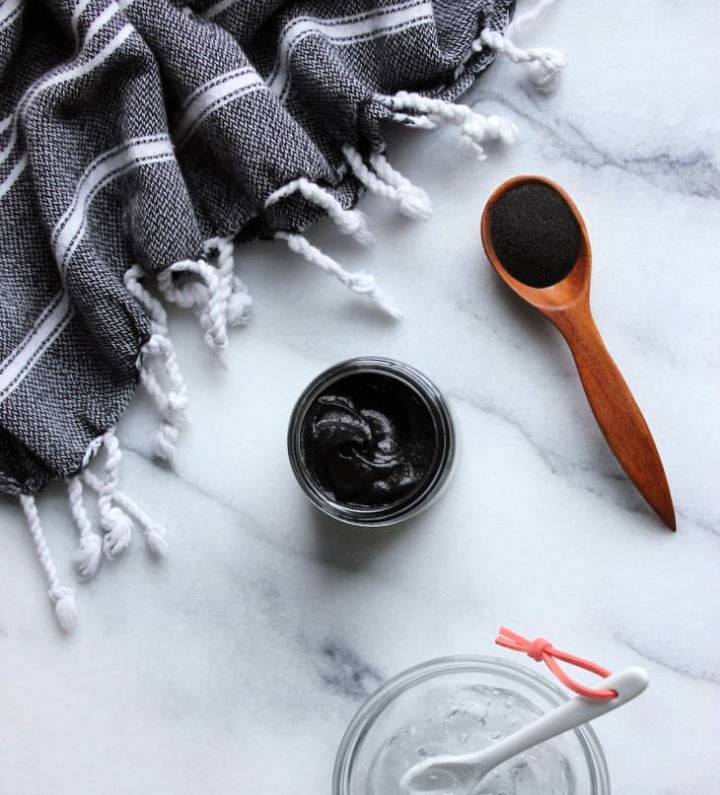
Revitalize your skin with the easiest detox mask you'll ever try, combining the mighty powers of activated charcoal and soothing aloe vera. This DIY Charcoal and Aloe Face Mask is a simple way to give your skin a deep clean and a fresh glow. With just a few natural ingredients, you can whisk away impurities and unveil smoother, radiant skin in minutes. Perfect for an at-home spa day!
5. Activated Charcoal Face Mask Recipe
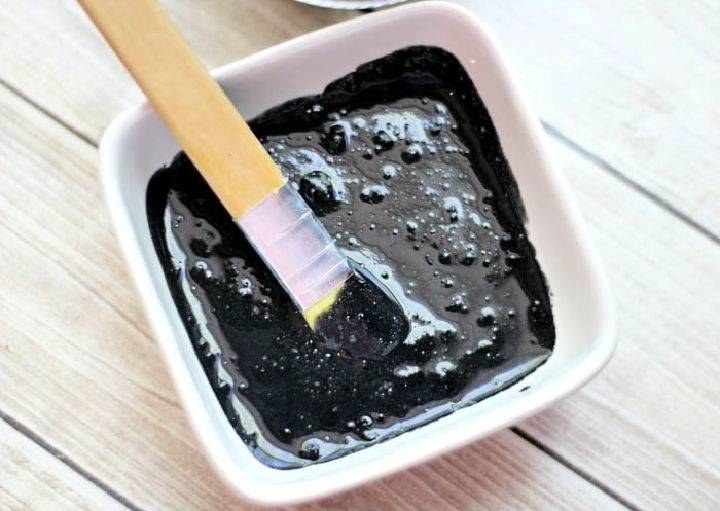
Unlock the secret to deeply cleansed and rejuvenated skin with a simple, homemade solution. This DIY Activated Charcoal Face Mask recipe is your go-to for unclogging pores and detoxifying your skin, leaving it smoother and younger-looking. Blend natural ingredients like activated charcoal and aloe vera in less than 5 minutes to make a potent mask. Remember, alongside using this mask, maintain skin health by removing makeup daily, using sunscreen, and opting for natural beauty products. Ready for fresher skin? Let this guide lead the way to a radiant complexion.
6. How to Make a Charcoal Mask at Home
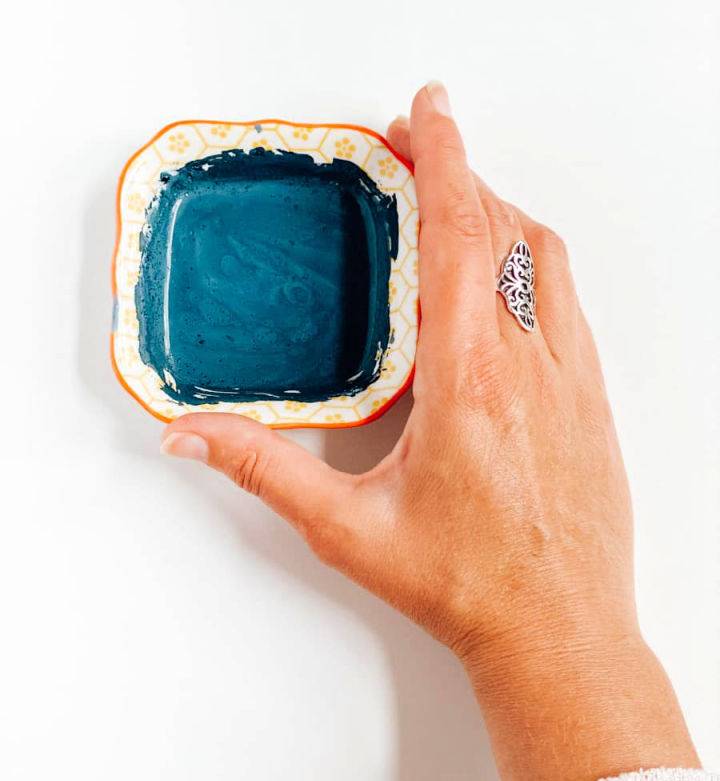
Discover how to make a DIY charcoal face mask that's 100% natural with this insightful guide from Organic Beauty Recipes. This mask, inspired by the Origins ‘Clear Improvement Active Charcoal Mask', is free from chemicals, preservatives, and doesn't come with a hefty price tag. Ideal for oily and acne-prone skin, this recipe uses ingredients like kaolin clay, activated charcoal, and essential oils to deeply cleanse and rejuvenate your skin. It's simple to make, beneficial for the skin, and a wonderful addition to your skincare routine.
7. DIY Matcha and Charcoal Face Mask
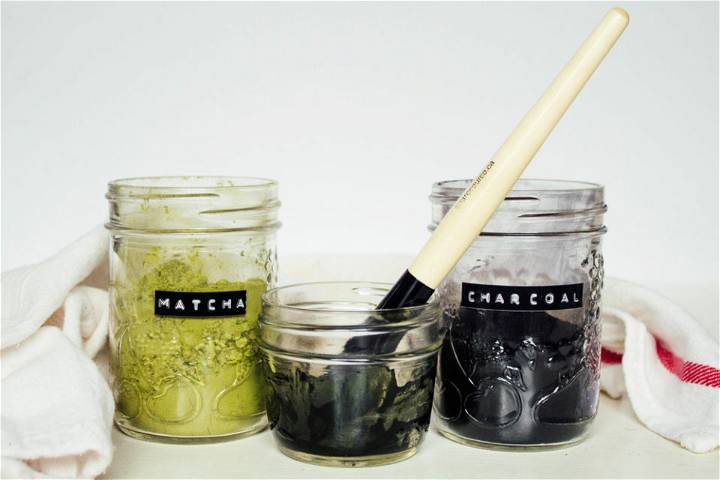
Discover the perfect balance for your skincare routine with a DIY Matcha + Charcoal Face Mask, courtesy of Cashmere & Plaid. This homemade mask combines the moisture-rich properties of matcha with the purifying strength of charcoal. It's adaptable to your skin's daily needs—more matcha when dry and extra charcoal for oily days. No exact measurements are needed; adjust as you go for a personalized skincare experience. Include this DIY mask in your beauty regime for a natural, thoughtful living approach to maintaining your skin's health.
8. Make Your Own Charcoal Face Mask
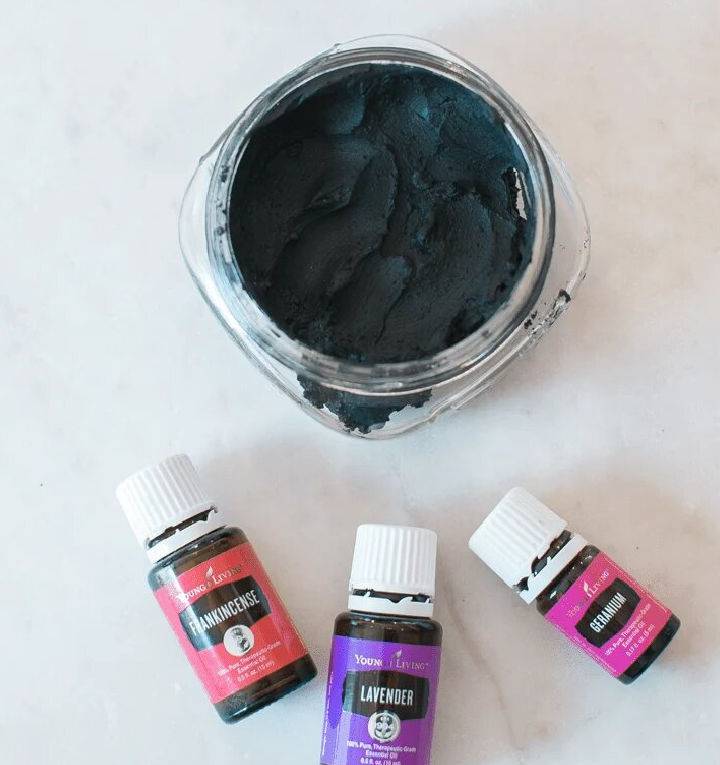
Unlock the secret to radiant skin with your very own homemade Charcoal Mask! Join the scores who are embracing the power of Activated Charcoal to detoxify, absorb excess oil, and leave their skin glowing. This insightful guide on By Oily Design walks you through crafting a gentle, yet effective mask that incorporates the optional benefits of essential oils, enhancing your skin's natural beauty without the harshness of peeling masks. Perfect for weekly indulgence, it's your first step towards a brighter, healthier complexion. Ready for an effortless glow?
9. Easy DIY Charcoal Face Mask in 3 Ingredients
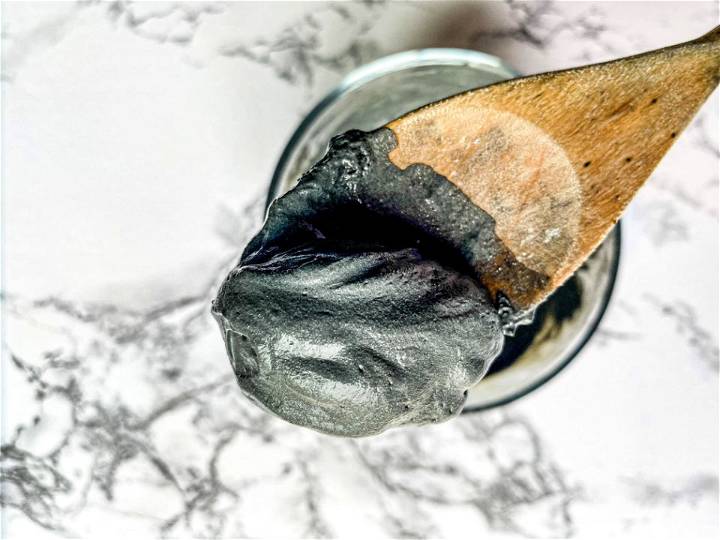
Discover the power of a homemade solution to combat oily and acne-prone skin with a simple DIY charcoal face mask. Crafted from just three ingredients—bentonite clay, activated charcoal, and apple cider vinegar—this face mask is both cost-effective and easy to make.
Perfect for those seeking a natural approach to skincare, this mask helps to draw out impurities and balance oil production for a clearer, smoother complexion. For added benefits, consider incorporating a few drops of your preferred essential oils. Dive into a healthier skincare routine by visiting The Simple Home Place for full instructions and more wholesome DIY beauty tips.
10. Charcoal Face Mask With Natural Ingredients
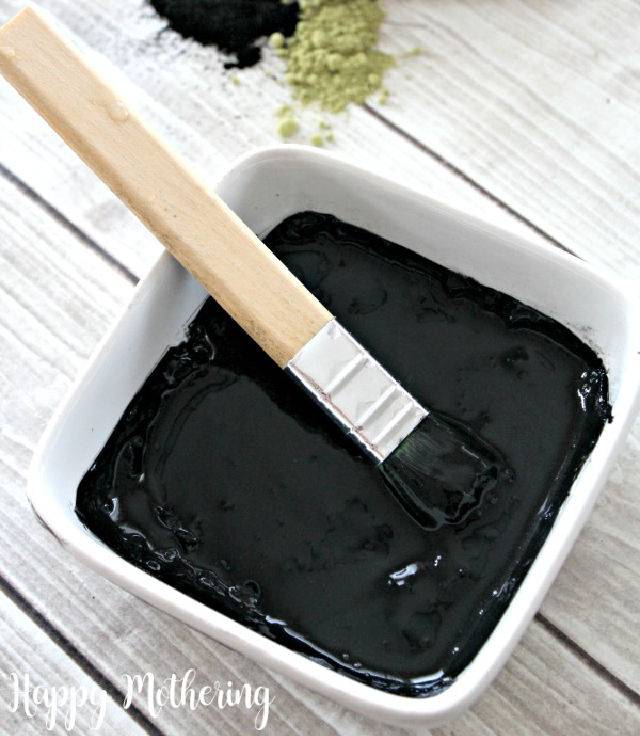
Unlock the secret to radiant skin with a homemade Activated Charcoal Face Mask. Made with natural ingredients like Matcha green tea and jojoba oil, this mask is tailor-made to minimize pores and hydrate your skin, offering a natural glow. Ideal for a weekly pampering session, it's easy to prepare and ensures your skin receives the utmost care. Dive into a luxurious, skin-loving experience today and pamper your skin like never before!
11. Best Peel Off Charcoal Face Mask Recipe
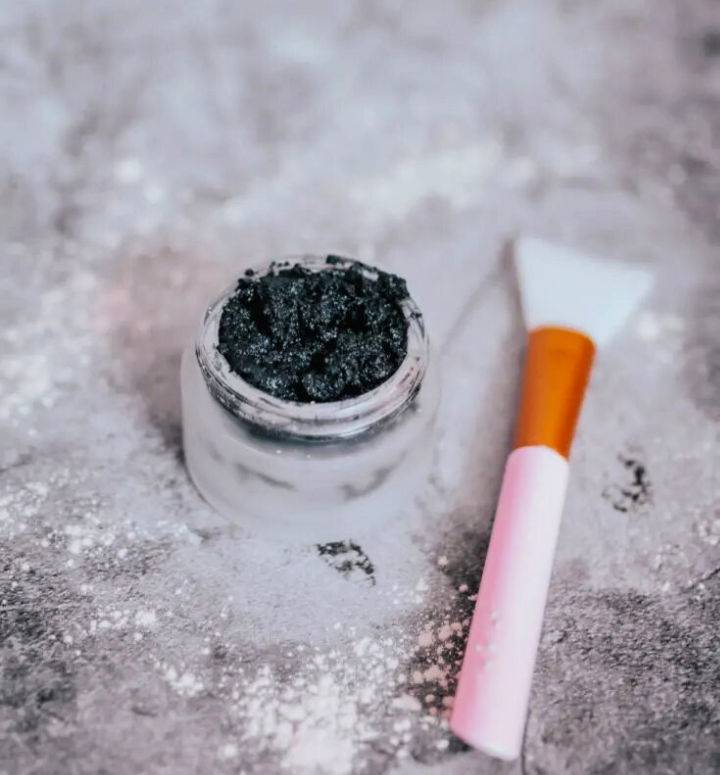
Transform your skin with an easy-to-make DIY peel-off charcoal face mask that draws out blackheads and impurities. For a detailed guide on crafting your own skin-clearing remedy, visit Holly Habeck's tutorial. With just four simple ingredients, you can achieve a cleaner and healthier complexion right from the comfort of your home. Dive into the benefits of activated charcoal and see immediate improvements, especially if you're battling blackheads.
12. DIY Charcoal Face Mask With Coconut Oil
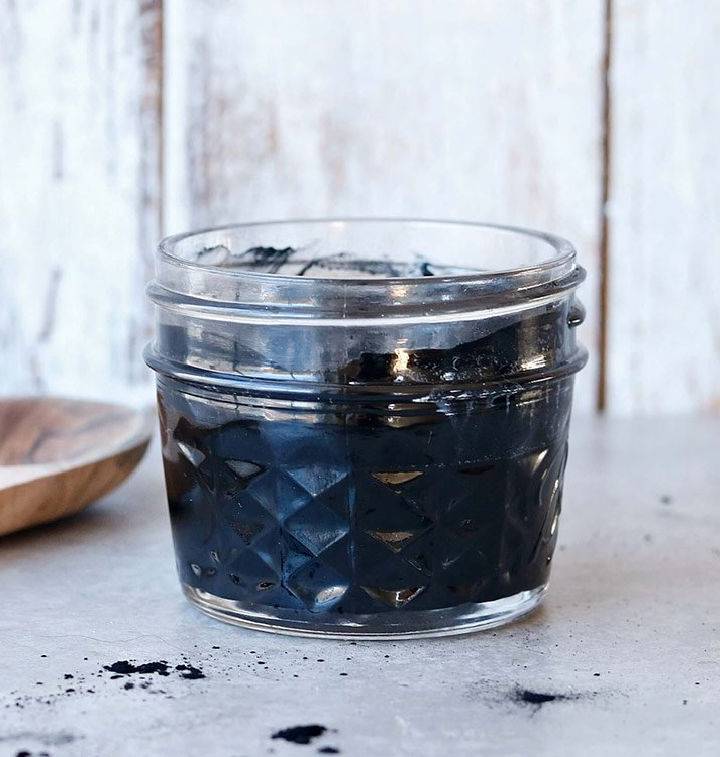
Unlock the secret to dewy, soft skin with a simple DIY charcoal face mask using just three ingredients! This natural mask recipe combines activated charcoal, coconut oil, and baking soda for a gentle yet effective treatment. Activated charcoal draws out toxins and tightens pores, while coconut oil nourishes and moisturizes the skin. Ideal for all types, it's your go-to for a radiant complexion. Try it today and keep your skincare routine clean and straightforward!
13. Charcoal Face Mask for Acne Prone Skin
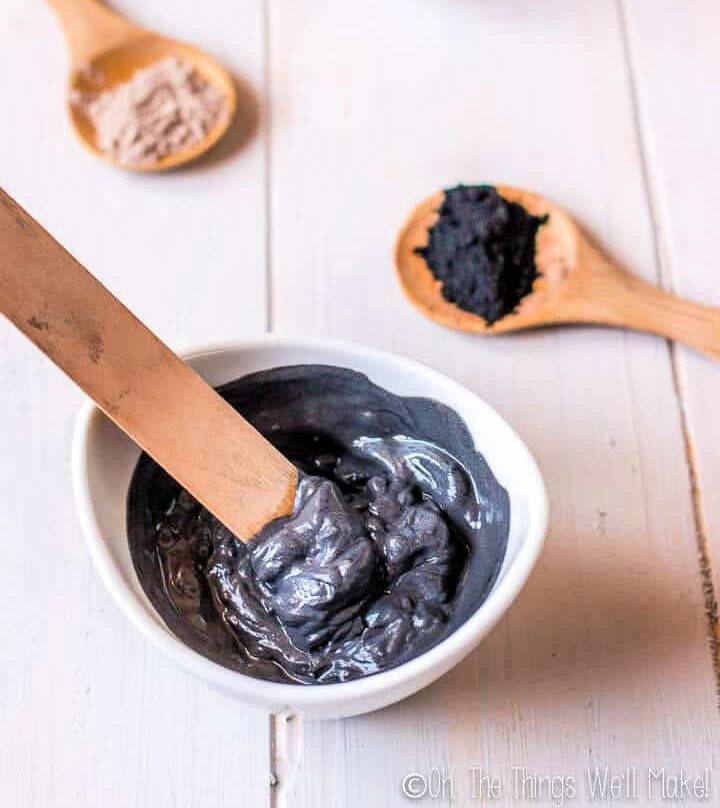
Discover the secret to clearer skin with our DIY Charcoal Face Mask, perfect for those dealing with oily, combination, or acne-prone skin. Simple to make and natural, this mask combines the absorbing power of activated charcoal with the deep-cleansing abilities of bentonite clay.
Whether you're striving for a healthier complexion or tackling an unexpected breakout, this mask works to detoxify and purify your pores, leaving you with refreshed, clearer skin. Explore the full recipe and benefits at The Things We'll Make. For a convenient beauty ritual, prepare the dry mix ahead of time, allowing for a quick and easy mask application whenever needed.
14. Simple DIY Charcoal Jelly Face Mask
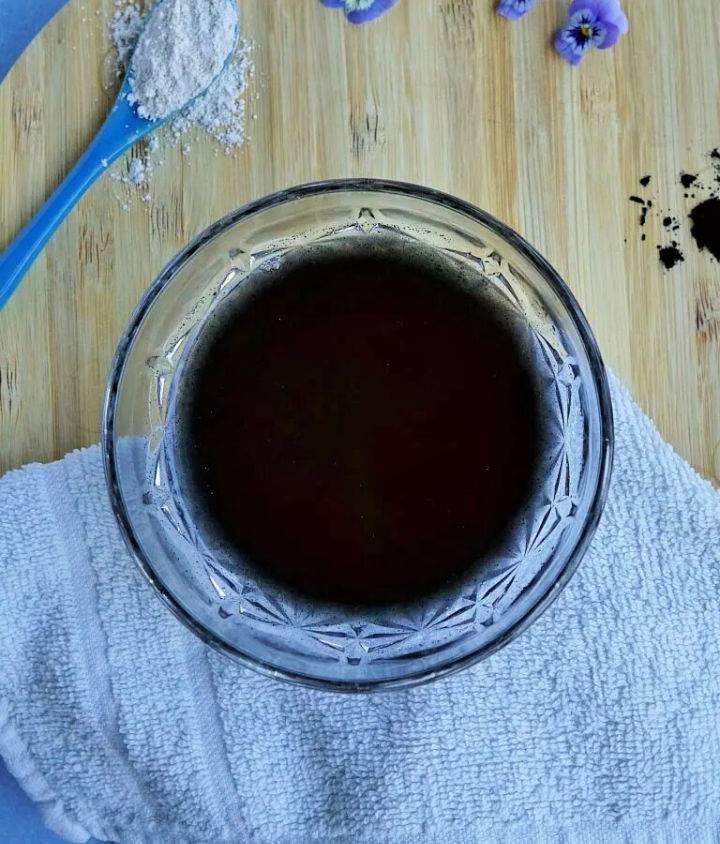
For a refreshing and unique skincare experience, dive into the world of DIY beauty with an activated charcoal jelly face mask. Inspired by LUSH's innovative jelly masks, this homemade version harnesses the power of natural ingredients like activated charcoal and kaolin clay, making an intriguing black jelly that effectively fights blackheads and absorbs excess oil.
Easy to make with just a few kitchen staples like agar agar powder and optional honey for an added touch, this face mask promises a fun crafting experience with the reward of silky, balanced skin. Perfect for an at-home spa day, especially as Halloween approaches. Remember, due to its natural composition, it's best used fresh to ensure maximum benefits.
15. How to Make Your Own Charcoal Face Mask
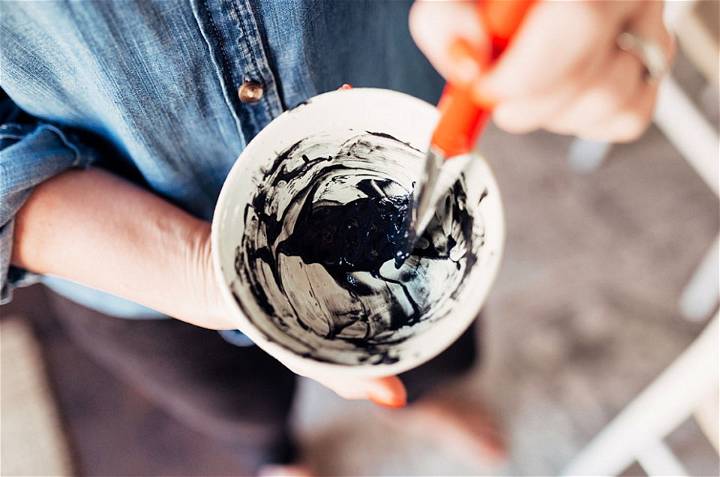
Dive into the world of self-care with an easy-to-make DIY Charcoal Face Mask from Twist Me Pretty. Discover the simple recipe and understand why charcoal is your skin's best friend. Brighten, exfoliate, and balance your skin tone with ingredients like activated charcoal and bentonite clay. Perfect for those looking to refresh their skincare routine at home. Remember, a little goes a long way—use this mask 1-2 times a month for radiant skin. Ready to glow?
16. DIY Charcoal Mask - Step by Step Instructions
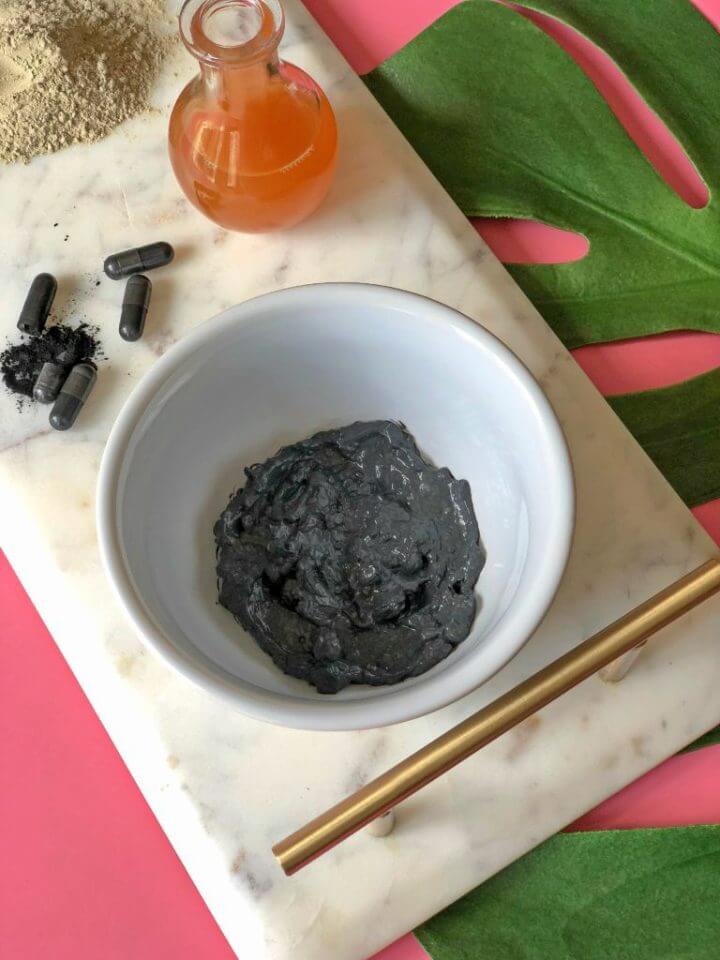
For a natural, effective way to rejuvenate your skin, dive into the world of DIY with this charcoal mask recipe. Perfect for those seeking a budget-friendly, easy-to-make skincare solution that harnesses the purifying power of charcoal and the natural benefits of apple cider vinegar. Experience the satisfying sensation of tighter pores as the mask dries, following a recipe trusted since the age of Cleopatra. With a simple mix of bentonite clay, vinegar, and charcoal, and a quick cleanup, this mask is ideal for a weekly routine to keep your skin looking radiant.
17. Natural Ingredients Charcoal Face Mask
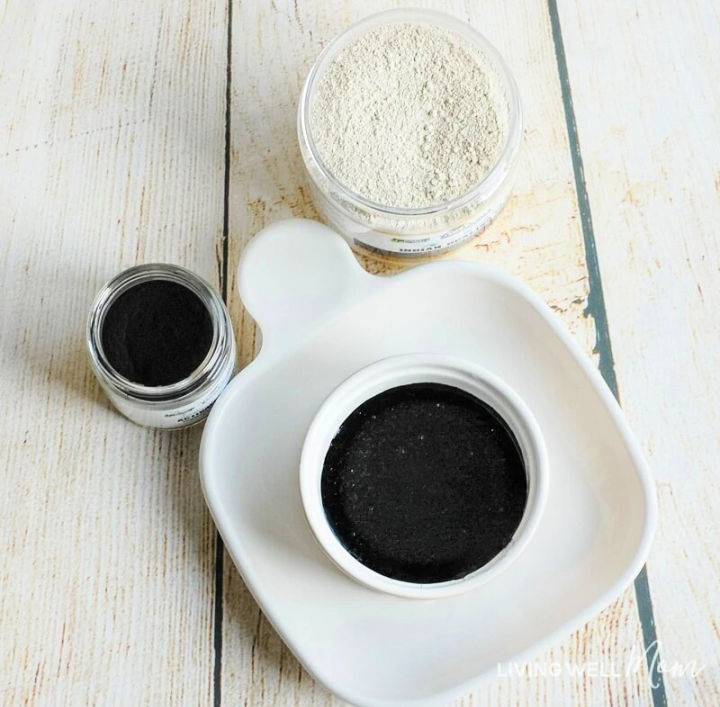
Discover a simple yet effective DIY charcoal face mask recipe that uses natural ingredients. Mixing charcoal and clay powders with aloe vera and gelatin makes a potent, fresh mixture for deep pore cleansing. Avoid the harsh chemicals and unpleasant odors of store-bought masks by making your own at home. Apply smoothly to avoid lumps, and test on your T-zone if you have sensitive skin. This homemade option offers clear, smooth skin without the chemical scent, perfect for those seeking a natural skincare routine.
18. Peel Off Charcoal Face Mask Without Glue
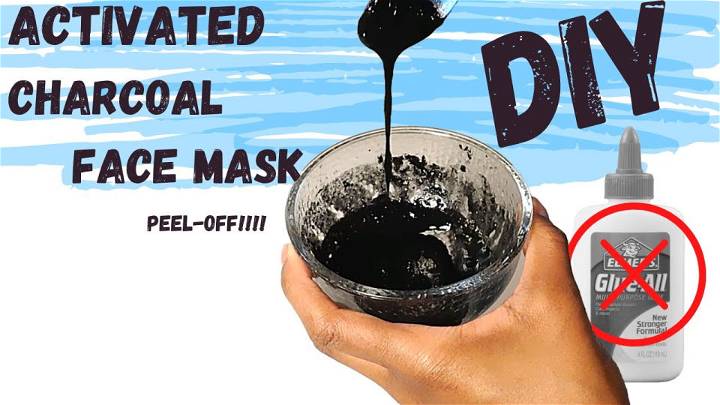
Unlock the secrets to a flawless complexion with Kia Rene's easy-to-follow DIY Activated Charcoal Mask tutorial. No glue, just natural goodness. This mask combines the detoxifying power of activated charcoal with the soothing benefits of green tea and the healing properties of bentonite clay, all mixed into a simple, yet effective concoction that's perfect for a weekend pamper session. Ready to reveal your best skin? Watch the full guide here and start mixing! Watch Now
19. Handmade Charcoal Face Mask Tutorial
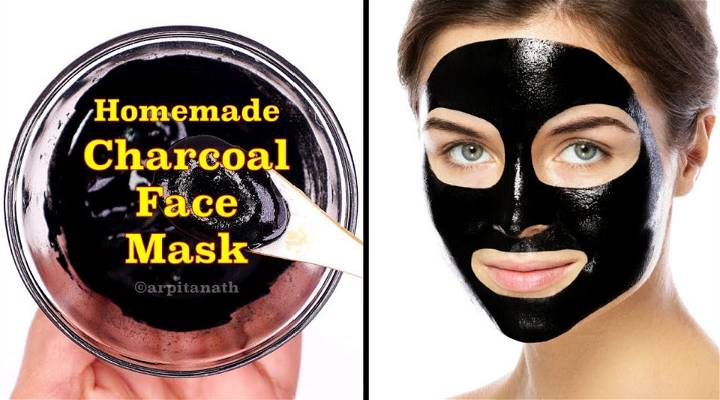
Discover the secrets to combating oily skin, acne, and pimples with a homemade charcoal face mask. Crafted from activated charcoal, neem leaf powder, honey, and tea tree essential oil, this mask draws out impurities, detoxifies pores, and leaves your skin glowing. Perfect for oily and combination skin types, this wash-off mask is easy to make and can be stored in the refrigerator for up to 10 days. For best results, apply twice a week and follow up with a moisturizer. Learn how to make this skincare miracle by clicking here.
20. Making a Charcoal Face Mask
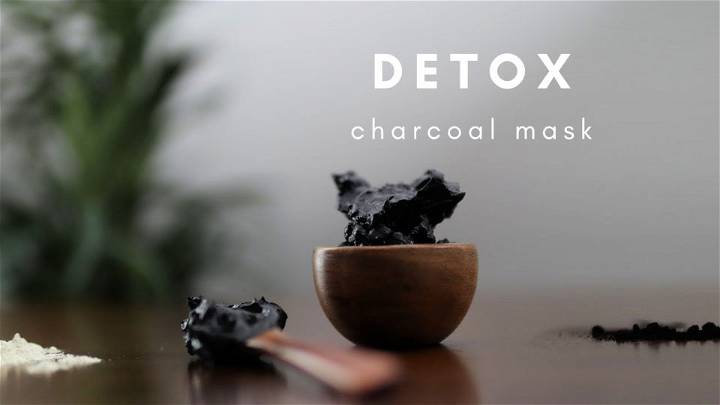
Unleash the power of natural skincare with a DIY Charcoal Mask. Perfect for detoxifying your face, this easy-to-follow tutorial walks you through each step. Ideal for anyone seeking a healthier complexion, this mask removes impurities effortlessly. Clear instructions make it accessible and rewarding, promising a refreshing experience. Give your skin the care it deserves today.
Conclusion:
In conclusion, mastering the DIY charcoal face mask with these 20 best detoxifying recipes offers a natural, cost-efficient, and effective way to enhance your skincare routine. Charcoal, revered for its purifying properties, acts as a magnet to draw out impurities, making it a superb choice for those seeking a clearer, more vibrant complexion.
By following our simple steps and tips, along with safety advice, you can make personalized face masks tailored to your skin's needs. Remember, consistency and understanding your skin's response are key to achieving the best results. So, dive into making your DIY charcoal face mask today and witness the transformation towards healthier, glowing skin.


